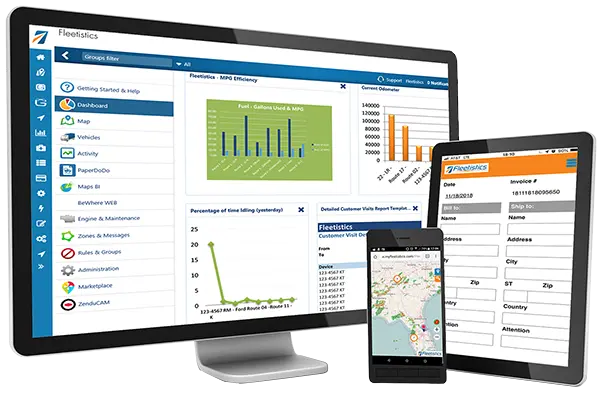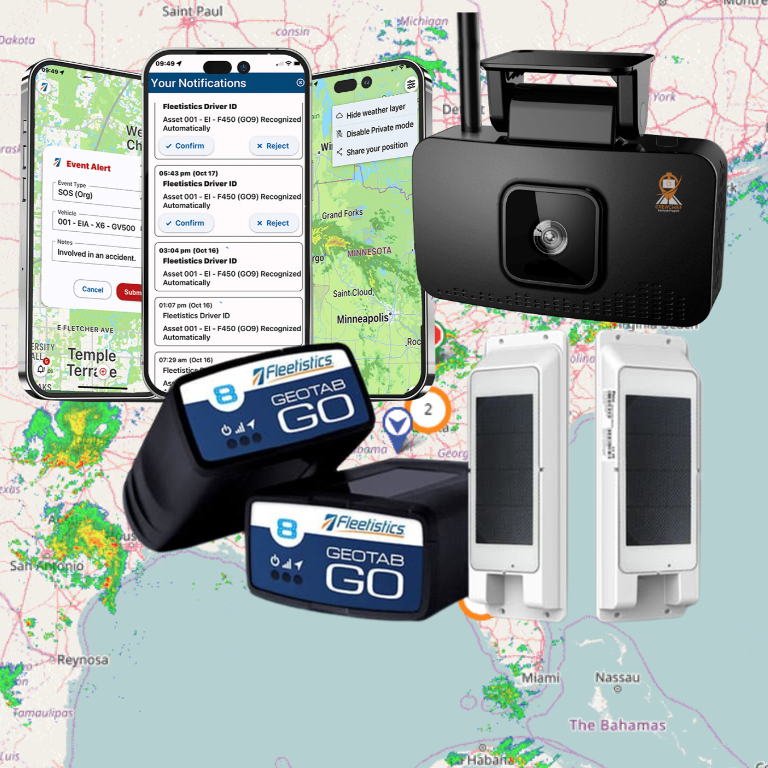Essential Duties of a Fleet Manager
A fleet manager is responsible for overseeing and managing a company’s fleet of vehicles. They play a crucial role in ensuring that the fleet operates efficiently and effectively, meeting all operational requirements. The fleet manager’s responsibilities can be broad and encompass various aspects of fleet management.

The Importance of Their Role
It involves activities such as defining the fleet composition, designing vehicle routes, assigning transportation jobs to vehicles, scheduling their movements, planning and scheduling vehicle maintenance, replacement, and more. In addition to these operational tasks, fleet management also plays a crucial role in reducing risks, increasing the quality of service, and improving the overall operational efficiency of a fleet at a minimal cost. Efficient fleet management systems are essential for companies to achieve these goals and stay competitive in the transportation industry.
One important aspect that is often overlooked is its impact on the environment. As transportation is a major contributor to greenhouse gas emissions, fleet managers have a responsibility to analyze and mitigate the environmental impact of their operations. This can include implementing fuel-efficient vehicles, optimizing routes to minimize fuel consumption, and exploring alternative energy sources such as electric vehicles. Stephanie Fuhrmann-Allen, Ocular Recovery Supervisor from Lions World Vision Institute shares one of her challenges: “Other than constant fear of motor vehicle accidents with my techs on the road 90% of the time, just the trackers being bumped and deactivating.”
Successful fleet management requires strong organizational and problem-solving skills, as well as the ability to make informed decisions that benefit the company and its stakeholders. They also play a key role in coordinating with various stakeholders to ensure smooth operations. For example, they must collaborate with finance departments to make budgetary decisions related to vehicle procurement and maintenance. They may also work closely with human resources departments to hire and train drivers, as well as marketing teams to promote the company’s fleet services to potential customers and clients.
Skills Required to Be Successful
First and foremost, strong organizational skills are essential. Fleet managers are responsible for overseeing and coordinating the activities of a company’s fleet of vehicles. They must be able to effectively plan and prioritize tasks, allocate resources efficiently, and ensure that vehicles are operating in accordance with company policies and regulations. Additionally, they must have excellent problem-solving skills to effectively address any issues that arise in the fleet management process.
Excellent communication skills are also crucial for a fleet manager. They must be able to effectively communicate with drivers, maintenance staff, and other stakeholders to ensure that everyone is aligned and working towards the same goals. Furthermore, analytical skills are also important. They must be able to analyze data and trends related to vehicle usage, fuel consumption, maintenance costs, and other key metrics. This analysis allows them to make informed decisions about vehicle procurement, route optimization, and maintenance planning to improve the efficiency of their operations.
How Technology is Transforming Fleet Management
With the advancements in technology, fleet management has undergone a significant transformation. The integration of telematics, GPS tracking, and data analytics has revolutionized how fleet managers operate. These tools provide real-time insights into vehicle location, fuel consumption, driver behavior, and maintenance needs. By utilizing these technological advancements, fleet managers can make data-driven decisions that optimize fuel efficiency, reduce maintenance costs, improve driver safety, and enhance productivity. They can monitor vehicle performance and identify trends or patterns that may impact the fleet’s operations and make proactive adjustments.
By harnessing the power of technology, they can optimize routes, reduce fuel costs, and improve overall efficiency. They can track driver performance and provide feedback for improvement, leading to safer driving practices and reduced accidents. Additionally, technology enables them to automate administrative tasks, such as vehicle registration and maintenance tracking, reducing paperwork and streamlining processes. Moreover, the use of advanced fleet management systems has allowed for better coordination and routing at the field level, leading to improved logistics efficiency, effectiveness, and flexibility.
Conclusion
Fleet Managers play a crucial role in ensuring that the fleet operates efficiently, safely, and cost-effectively. With the rise of e-commerce and the increasing demand for last-mile delivery services, fleet management has become even more critical for businesses to stay competitive. One of the most significant trends in fleet management is the integration of electric vehicles into the fleet. As the world shifts towards a more sustainable future, many companies are adopting EVs to reduce their carbon footprint and lower fuel costs.
Fleet managers need to understand the unique requirements of EVs, such as charging infrastructure and battery range, to effectively incorporate them into their operations. Check out this post from Traton celebrating #WorldEVDay. They are committed to reducing greenhouse gas and pollutant emissions of heavy commercial vehicles through electrification and constant innovation.
Another invaluable tool in fleet management is telematics. Telematics refers to the technology that combines telecommunications and informatics to provide real-time data about vehicles. With the help of telematics, fleet managers can monitor and track various aspects of their fleet, including vehicle location, speed, fuel consumption, and maintenance needs. This real-time data allows fleet managers to make informed decisions and take proactive measures to optimize vehicle utilization, improve driver safety, and reduce operational costs.
If you are thinking of pursuing a career in fleet management, Indeed offers an in-depth skills analysis.















